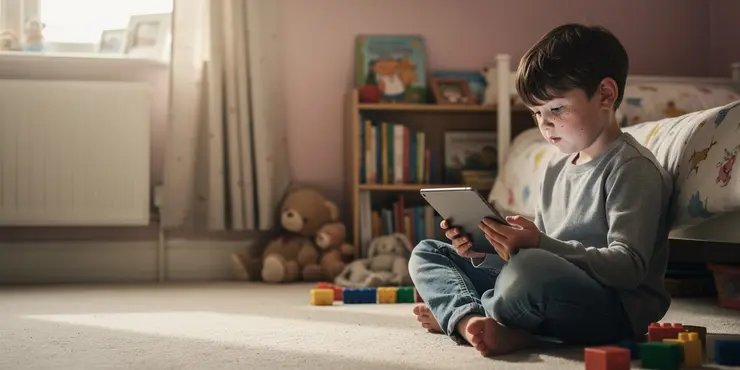
Find Help
More Items From Ergsy search
-
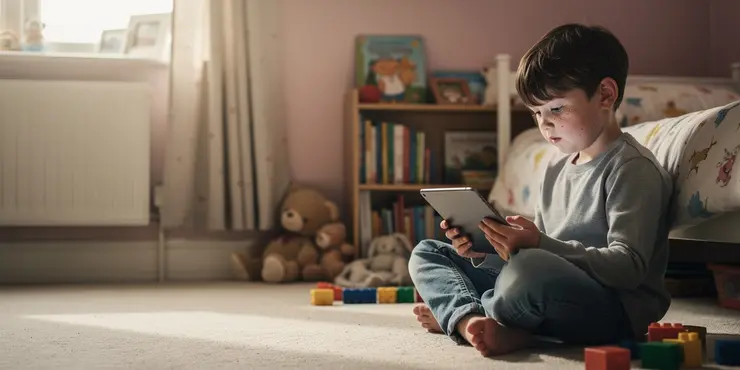
Are children more affected by screen time in relation to sleep than adults?
Relevance: 100%
-
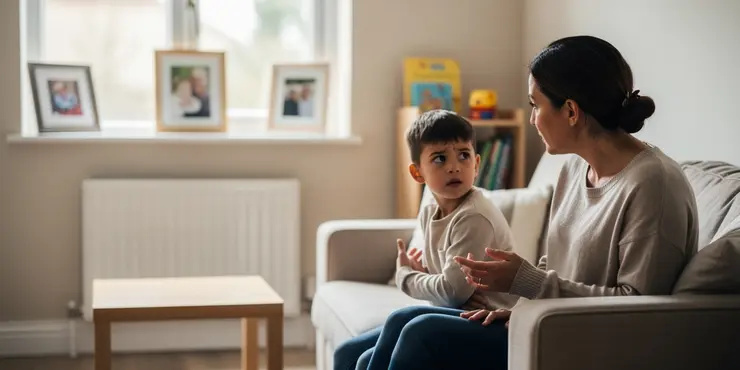
What is the role of parental monitoring in children's screen time and sleep?
Relevance: 79%
-
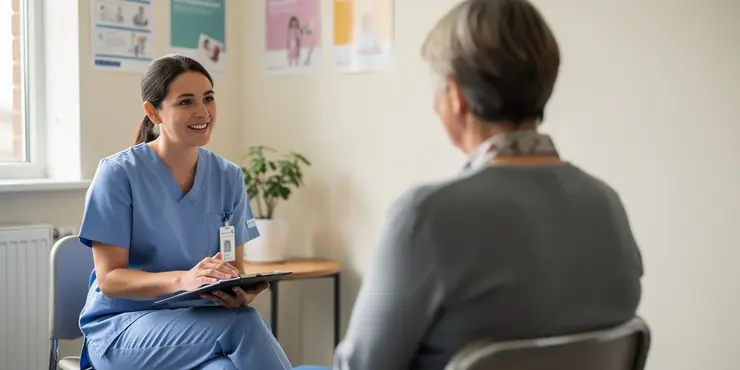
Does screen time affect both sleep onset and sleep maintenance?
Relevance: 73%
-
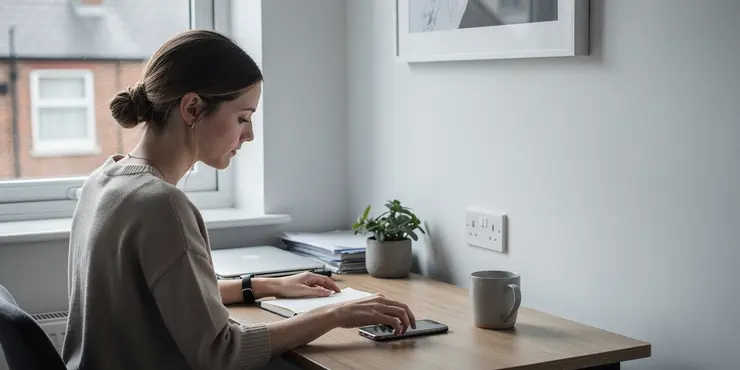
How does screen time affect sleep quality?
Relevance: 71%
-
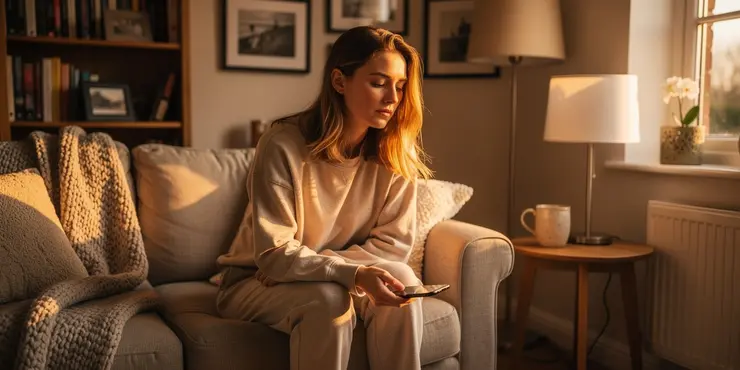
Can reducing screen time improve sleep quality?
Relevance: 69%
-
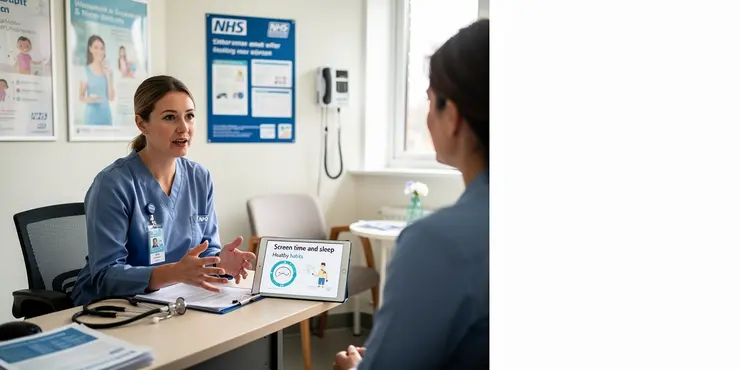
Does screen time impact REM sleep?
Relevance: 68%
-
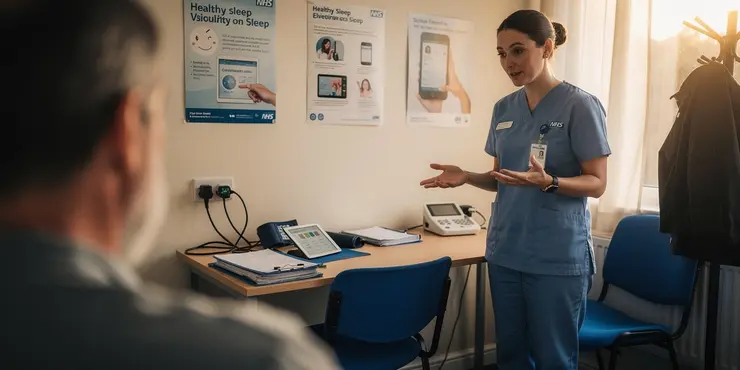
What is the main finding of the study linking screen time to sleep quality?
Relevance: 67%
-
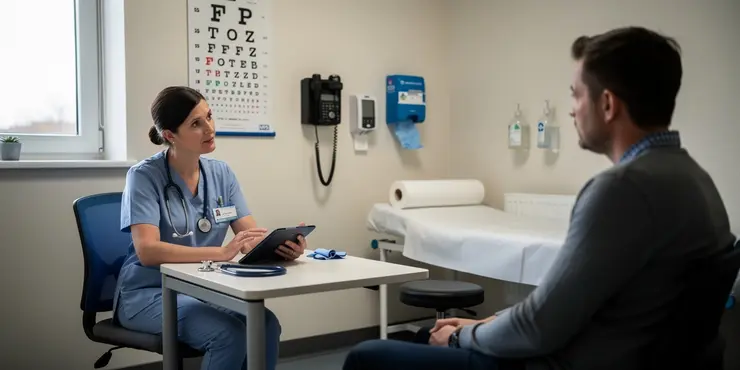
Study Shows Link Between Screen Time and Sleep Quality
Relevance: 67%
-

Is there a difference in screen time impact on sleep between weekdays and weekends?
Relevance: 66%
-
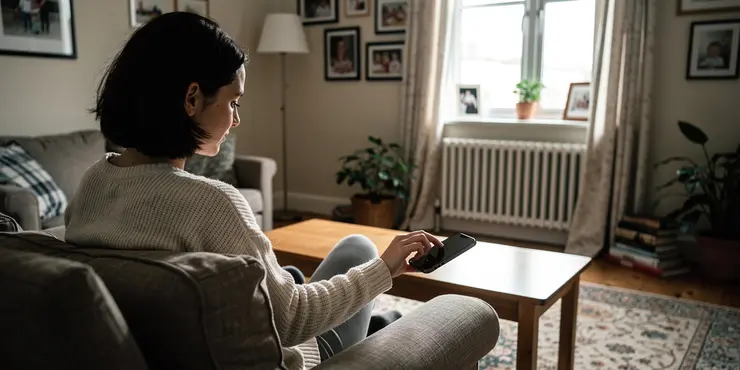
Are there any screen time guidelines recommended for improving sleep?
Relevance: 63%
-
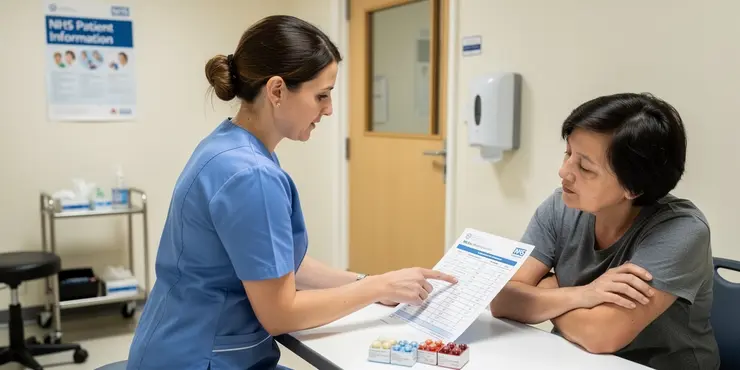
What are some tips for reducing screen time to improve sleep?
Relevance: 62%
-
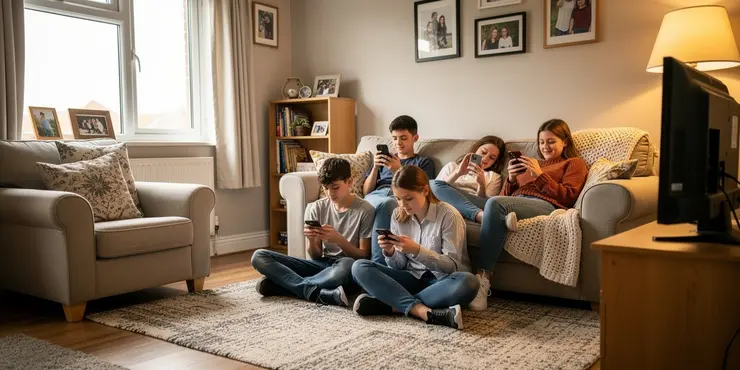
What demographic showed the most significant change in sleep quality due to screen time?
Relevance: 62%
-
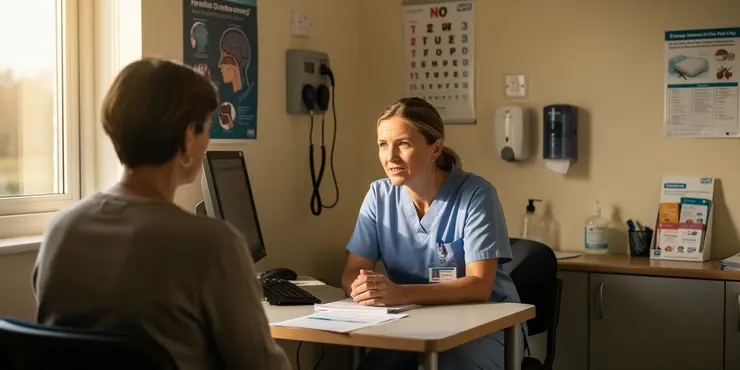
Does sleep apnea occur only in adults?
Relevance: 58%
-
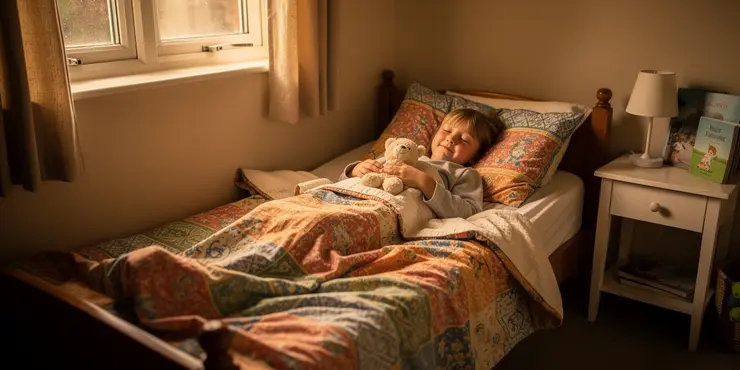
Can children have sleep apnea?
Relevance: 53%
-
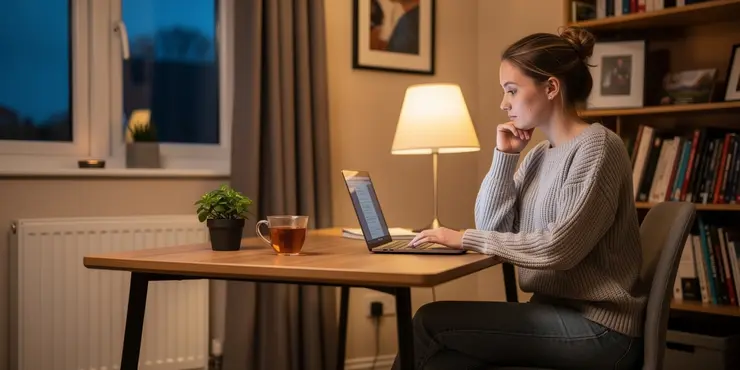
Is blue light from screens a factor in affecting sleep quality?
Relevance: 51%
-
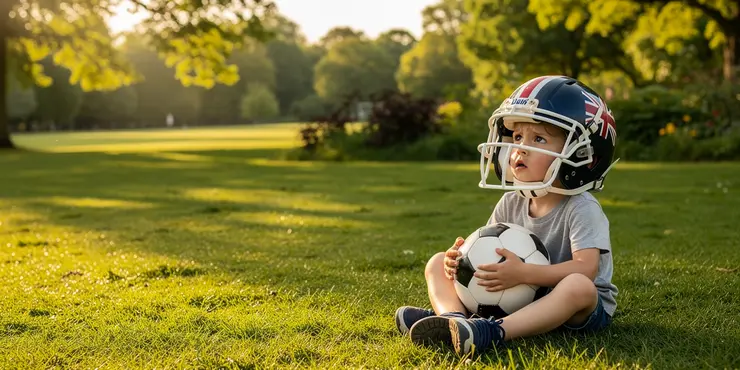
Are children more susceptible to concussions than adults?
Relevance: 49%
-
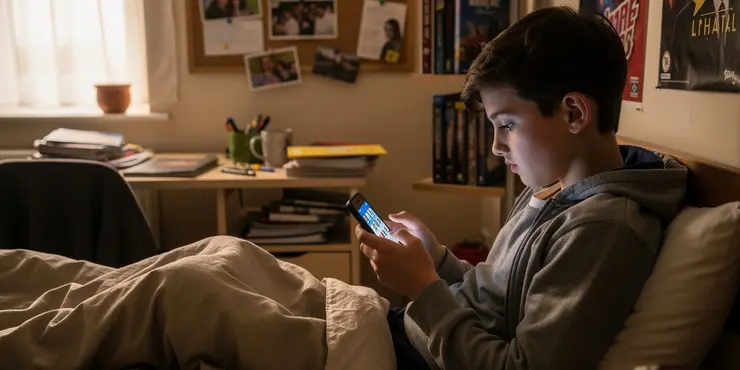
How does screen time before bed specifically affect adolescents?
Relevance: 48%
-
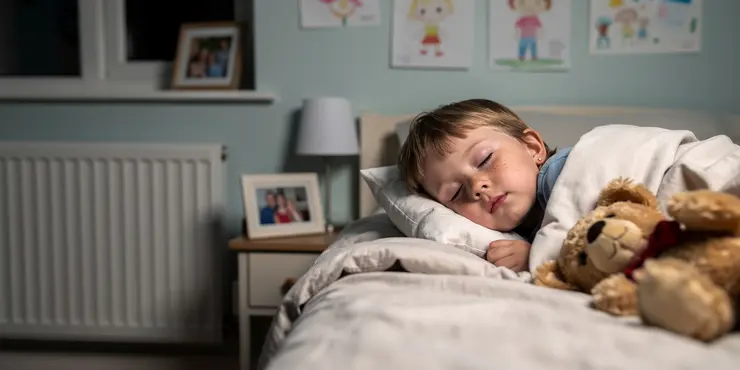
The Importance of Sleep for All Ages
Relevance: 47%
-
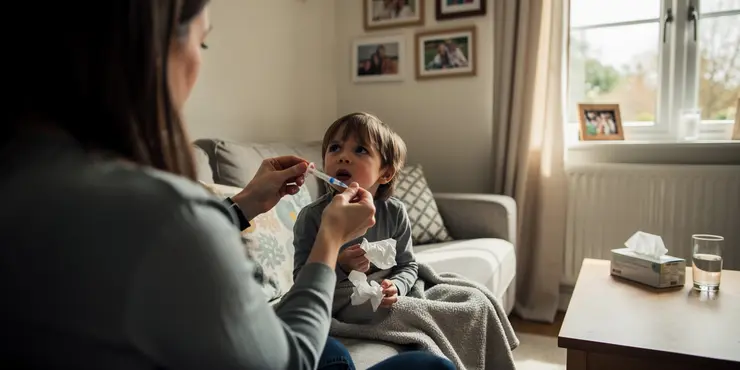
Can children take the same cold medications as adults?
Relevance: 44%
-
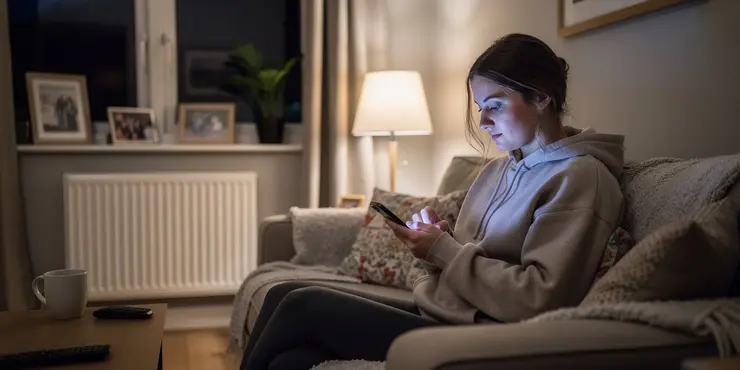
What are some long-term effects of poor sleep quality linked to screen time?
Relevance: 43%
-
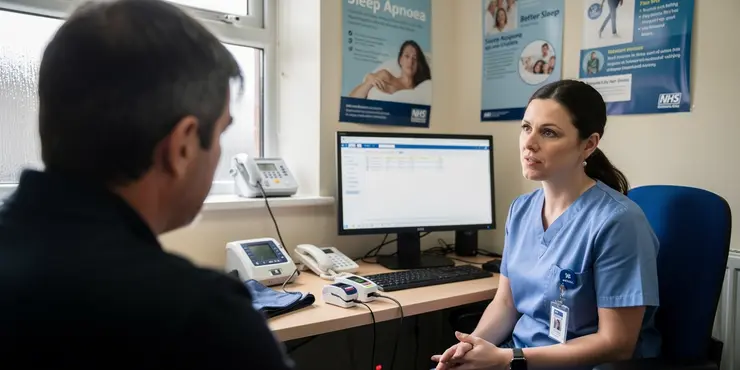
How common is sleep apnea?
Relevance: 40%
-
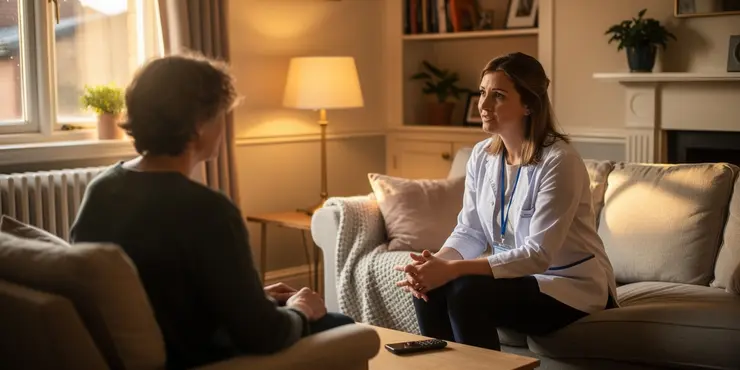
Top Tips to Help You Get a Good Nights Sleep
Relevance: 36%
-
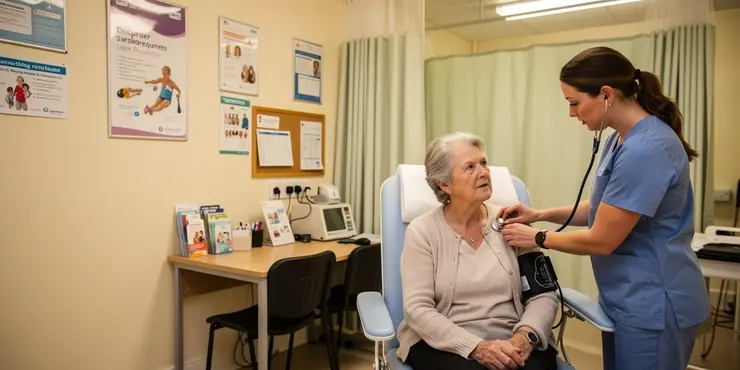
Is it safe to sleep after a concussion?
Relevance: 36%
-
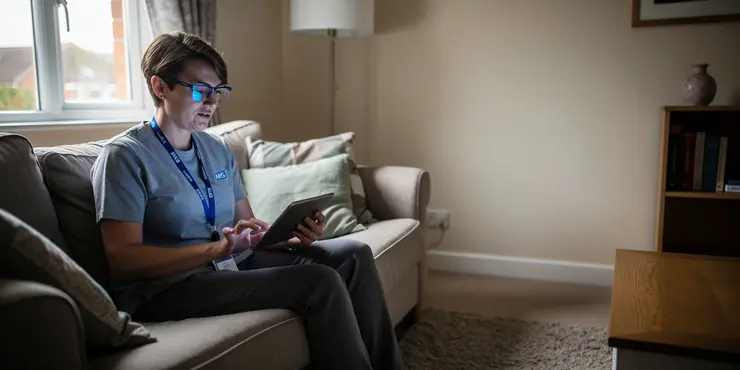
Do mitigation strategies like blue light glasses help improve sleep quality?
Relevance: 36%
-

How to treat diarrhoea and vomiting at home (adults and children aged 5 and over) | NHS
Relevance: 35%
-
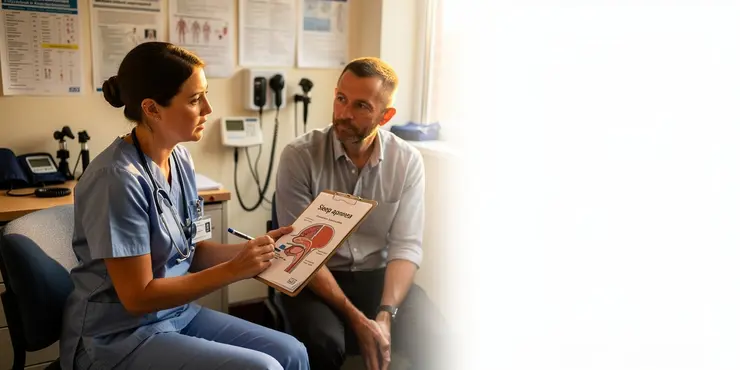
What is sleep apnoea?
Relevance: 34%
-
Can children develop chronic fatigue syndrome?
Relevance: 34%
-

Can adults have ADHD?
Relevance: 34%
-
At what age should my child be screened for type 1 diabetes?
Relevance: 34%
-
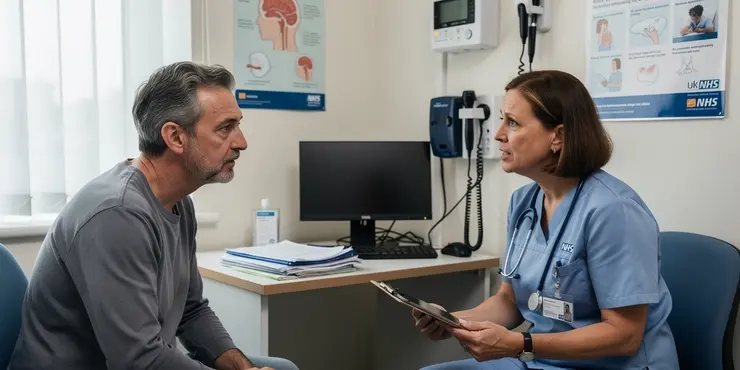
What is sleep apnea?
Relevance: 34%
-

Are adults in the UK at risk from measles?
Relevance: 34%
-
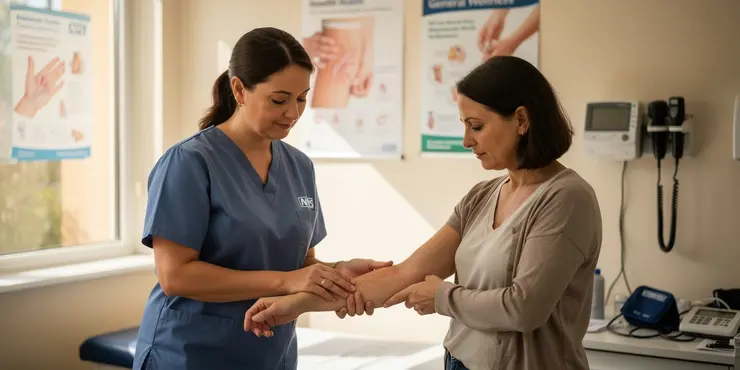
Can adults get impetigo?
Relevance: 33%
-
How often should screening be conducted if my child is at risk?
Relevance: 33%
-
Where can I have my child screened for type 1 diabetes?
Relevance: 33%
-
Is screening painful or risky for my child?
Relevance: 33%
-
Why should I consider screening my child for type 1 diabetes?
Relevance: 33%
-
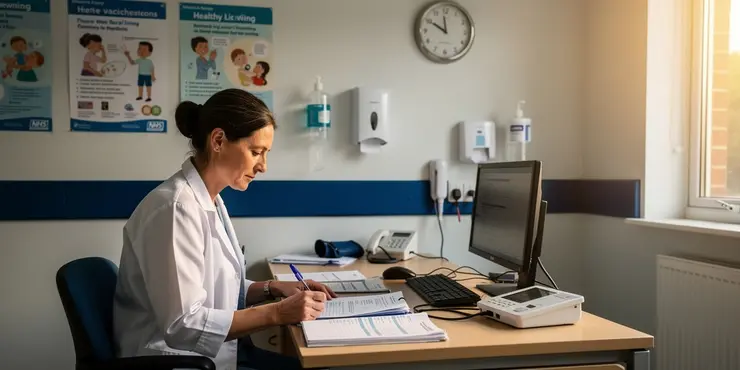
Can adults get chickenpox?
Relevance: 33%
-
Is tinnitus more common in older adults?
Relevance: 33%
-
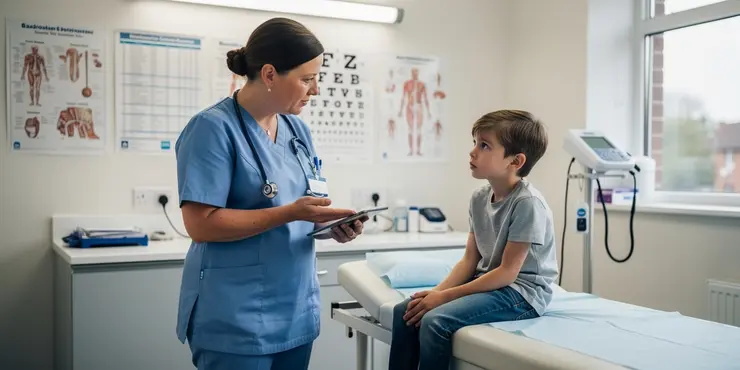
Is Baxdrostat suitable for children?
Relevance: 32%
-
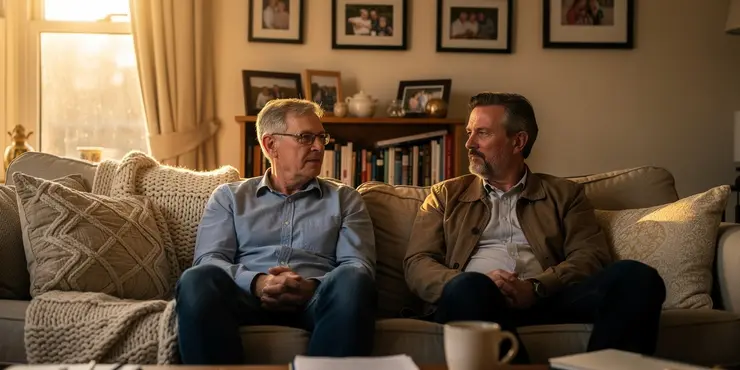
Can adults have autism?
Relevance: 32%
Introduction
In recent years, the impact of screen time on sleep has become a subject of growing concern. With the pervasive presence of digital devices in everyday life, both children and adults are exposed to screens more than ever before. This raises questions about the extent to which children are affected by screen time in comparison to adults, particularly in relation to sleep patterns.
Effects of Screen Time on Sleep
Screen time can significantly affect sleep due to the blue light emitted by screens, which can interfere with the body's natural circadian rhythms. Blue light exposure, especially before bedtime, can suppress the production of melatonin, a hormone that promotes sleep. This delay in melatonin production can make it more challenging to fall asleep and reduce the overall quality of sleep.
Children and Screen Time
Children are particularly susceptible to the effects of screen time on sleep for several reasons. Firstly, their sleep patterns are still developing, and disruptions can have a more pronounced impact. Secondly, children often have more screen exposure due to entertainment, education, and social media. As a result, they may experience more significant sleep disturbances, including difficulty falling asleep, reduced sleep duration, and poor sleep quality.
Adults and Screen Time
While adults also experience sleep disturbances due to screen time, they tend to have more established sleep patterns, making them slightly more resilient. However, prolonged use of digital devices can still lead to issues such as insomnia, fatigue, and decreased productivity. Adults often have more control over their screen usage, allowing them to implement strategies to mitigate the negative effects, whereas children may require parental guidance.
Comparative Impact
Research suggests that children are generally more affected by screen time in relation to sleep than adults. This is due to their developing bodies and minds, which are more vulnerable to external influences. Moreover, the importance of adequate sleep for growth and cognitive development in children cannot be overstated. Sleep deprivation in children can lead to a range of issues, including behavioral problems, impaired academic performance, and health concerns.
Conclusion
The impact of screen time on sleep is a significant concern for both children and adults. However, children appear to be more affected due to their developmental stage and higher sensitivity to external stimuli. To promote better sleep hygiene, it's crucial for parents and caregivers to monitor and limit screen time, especially before bedtime. Encouraging activities that do not involve screens and establishing a consistent bedtime routine can help mitigate the negative effects of screen time on children's sleep.
Introduction
These days, many people worry about how screens affect our sleep. We use digital devices a lot, like phones, tablets, and TVs. This means everyone, both kids and grown-ups, looks at screens more now. People are asking if screens affect kids more than adults, especially when it comes to sleep.
Effects of Screen Time on Sleep
Looking at screens can change how well we sleep. This is because screens give off blue light. Blue light can confuse our body clocks. It can stop the body from making melatonin, which helps us sleep. If we don’t make enough melatonin, it’s harder to fall asleep, and we might not sleep as well.
Children and Screen Time
Kids are more affected by screens for several reasons. First, their sleep habits are still forming, so changes can affect them more. Also, kids often use screens more for fun, learning, and talking with friends. This can mean they have trouble falling asleep, sleep for shorter times, and don’t sleep as well.
Adults and Screen Time
Grown-ups can also have problems with sleep because of screens. But they usually have more regular sleep habits, which helps them be tougher. Still, using screens too much can cause adults to have trouble sleeping, feel tired, and get less work done. Adults can choose to use screens less, but kids might need help from parents.
Comparative Impact
Studies show that screens affect kids more than adults when it comes to sleep. Kids' bodies and brains are still growing, making them more sensitive. Kids need good sleep to grow and learn well. If they don’t sleep enough, it can cause problems, like behaving badly, doing worse in school, and health issues.
Conclusion
Screens can affect how well both kids and adults sleep, but kids seem to be more affected. This is because they are still developing and are more sensitive to things around them. To help kids sleep better, parents should watch how much time they spend on screens, especially before bed. Doing activities without screens and having a regular bedtime can help kids get better sleep.
Frequently Asked Questions
Why might children be more affected by screen time than adults when it comes to sleep?
Children's brains and bodies are still developing, making them more susceptible to the stimulating effects of screens, which can disrupt their sleep patterns.
How does screen time before bed affect children's sleep differently than adults?
Children are more sensitive to the blue light emitted by screens, which can suppress melatonin and delay sleep onset more significantly than in adults.
What role does melatonin play in children's sleep in relation to screen time?
Melatonin is a hormone that helps regulate sleep. Screen time before bed can reduce melatonin levels, making it harder for children to fall asleep.
Are children more likely to experience sleep disturbances from screen exposure than adults?
Yes, children are more likely to experience sleep disturbances such as difficulty falling asleep and staying asleep due to their greater sensitivity to screen exposure.
Does the content children view on screens affect their sleep differently than adults?
Yes, children may be more psychologically impacted by the content they view, leading to increased anxiety or excitement that can affect their ability to sleep.
How much screen time is considered excessive for children compared to adults?
For children, anything more than 1-2 hours per day can be excessive, especially before bedtime, while adults can often handle more without the same level of impact on sleep.
Can bedtime screen use affect the quality of children's sleep more than adults?
Yes, screen use before bed can affect children's sleep quality more by affecting their sleep cycles and leading to less restorative sleep.
What can parents do to minimize the effects of screen time on their children's sleep?
Parents can create a bedtime routine that excludes screens at least an hour before sleep and encourage alternative activities like reading or relaxation exercises.
Are children more prone to developing sleep problems due to screen time than adults?
Yes, children are generally more prone to developing sleep problems due to their heightened sensitivity to screens and ongoing development.
Has research shown that reducing screen time improves children's sleep more than it does for adults?
Research indicates that reducing screen time can significantly improve children's sleep patterns, often more so than it does for adults.
What symptoms indicate that screen time is affecting a child's sleep?
Symptoms may include increased irritability, difficulty waking up in the morning, frequent naps, and trouble focusing during the day.
Do children and adults have different sleep requirements that might make screen time more impactful?
Yes, children generally require more sleep than adults, and disruption can therefore have a more noticeable impact on their health and well-being.
How does screen addiction impact sleep in children compared to adults?
Screen addiction can exacerbate sleep problems more in children, leading to a cycle of decreased sleep and increased screen use.
Are there developmental reasons why screen time might affect children's sleep more than adults?
Children's brains are in a critical phase of development, making them more vulnerable to the cognitive and hormonal changes induced by excessive screen time.
What are some behavioral signs that screen time is affecting a child's sleep?
Signs include resistance to bedtime, frequent wake-ups during the night, and an increasing reliance on screens to fall asleep.
Does limiting screen time before bed help improve children's sleep, and is this effect similar in adults?
Limiting screen time before bed generally has a more pronounced positive effect on children's sleep than adults, as children are more affected by pre-sleep stimuli.
Are children’s sleep patterns generally more fragile than those of adults in relation to screen time?
Yes, children's sleep patterns are typically more sensitive to disruptions like excessive screen time, leading to greater variations in sleep quality.
Can screen time lead to long-term sleep problems in children more so than in adults?
Prolonged exposure to screen time can lead to more significant long-term sleep problems in children, potentially affecting their development and health.
What is the impact of video games on children’s sleep compared to adults?
Video games can be more stimulating for children, often affecting their ability to relax and fall asleep more than they do for adults.
How does screen time interact with other sleep-disrupting factors in children differently than in adults?
Screen time can compound with other factors like irregular sleep schedules and overstimulation, having a more significant cumulative effect on children's sleep compared to adults.
Why might too much screen time before sleep affect kids more than adults?
Kids might find it harder to sleep if they use screens a lot. Here’s why:
- Blue light: Screens give off a light called blue light. It can make it hard to feel sleepy.
- Still growing: Kids‘ bodies and brains are still growing and need sleep to grow well.
- Bedtime routine: Screens can distract from getting ready for bed, like brushing teeth and putting on pajamas.
To help, try these ideas:
- Turn off screens: Turn off screens an hour before bedtime.
- Other activities: Try reading a book or drawing instead of using a screen.
- Sleep-friendly space: Make the bedroom quiet and dark.
Kids' brains and bodies are still growing. This makes screens affect them more and can upset their sleep.
Does time on screens before bed change sleep for kids and adults?
Looking at screens before bed can make it hard to sleep. This affects kids and adults in different ways.
Kids: Screens before bed can keep kids awake longer. They might feel tired during the day.
Adults: Adults can also find it hard to sleep, but they might handle it better than kids.
Tips to help:
- Try to stop using screens at least 1 hour before bedtime.
- Read a book or listen to calm music to relax.
Children are more sensitive to blue light from screens. This light can make it harder for them to fall asleep because it stops the body from making a sleep chemical called melatonin.
How does melatonin affect children's sleep when they use screens?
Melatonin is a natural chemical in our body. It helps us sleep. Looking at screens before bed can lower melatonin. This makes it harder for kids to sleep.
Do screens keep kids awake more than grown-ups?
Yes, kids might find it hard to fall asleep and stay asleep. This is because they are more sensitive to looking at screens like TVs, tablets, or phones before bedtime.
Do screens change how kids sleep, like adults?
Can watching screens affect how kids sleep? Is it the same for grown-ups? Let's find out!
Tips to help with reading:
- Use pictures to understand the story.
- Ask someone to read out loud with you.
- Take breaks if it feels too long.
Yes, what children watch can make them feel worried or too excited, which might make it hard for them to sleep.
How much screen time is too much for kids and adults?
Here are some tips to help:
- Use a timer to keep track of time on screens.
- Take breaks to do other activities like playing outside.
- Parents and kids can make a plan together for screen time.
For kids, watching screens for more than 1-2 hours a day can be too much. This is especially true before bedtime. Adults might be able to watch longer without it affecting their sleep as much.
Does using screens before bed affect children's sleep more than adults' sleep?
Using screens before bed can make it harder for kids to sleep well. It can change their sleep patterns and they might not get the good rest they need.
How can parents help their kids sleep better when using screens?
Parents can make a bedtime plan without screens. Stop using screens at least one hour before bed. Instead, try reading or doing some calm activities to help relax.
Do kids have more trouble sleeping than grown-ups because of screens?
Kids might find it harder to sleep if they use screens a lot.
You can help by:
- Turning off screens 1 hour before bedtime.
- Reading a book instead of using a tablet or phone.
- Having a quiet time before sleep.
Yes, kids can have trouble sleeping more easily. This is because they are still growing and are very sensitive to screens like TVs and phones.
Does spending less time on screens help kids sleep better than grown-ups?
Research shows that cutting down on screen time can help kids sleep better. It helps kids more with sleep than it helps adults.
How do you know if too much screen time is making a child tired?
You might feel more grumpy. It can be hard to wake up in the morning. You might need to nap a lot. It can also be hard to pay attention during the day.
If you have these problems, try using a tool to help you. A planner can remind you what to do. You can also ask a friend for help.
Do kids and grown-ups need different amounts of sleep, and does screen time affect them differently?
Yes, kids need more sleep than grown-ups. If their sleep is disturbed, it can make a big difference to their health and how they feel.
How does too much screen time affect sleep in kids and grown-ups?
Too much screen time can make it hard for kids to sleep. This can make them use screens even more, making sleep problems worse. It is important to help kids cut down on screens, especially before bed.
Why might screen time affect children's sleep more than adults' sleep?
Is there something about how kids grow that makes screens affect their sleep more than adults? Kids' brains and bodies are still growing. Too much screen time can make it hard for them to sleep well at night.
Tools to help: Try a bedtime routine without screens. Read a story or listen to calm music before bed.
Children's brains are still growing and changing a lot. This makes them more sensitive to the effects of too much screen time. This can affect their thinking and hormones.
How can you tell if screen time is hurting a child's sleep?
Here are some signs to look for:
- The child takes a long time to fall asleep.
- The child wakes up a lot during the night.
- The child is tired and cranky during the day.
- The child has trouble waking up in the morning.
Try these tips to help:
- Have a bedtime routine without screens.
- Turn off screens at least 1 hour before bed.
- Use apps that change screen colors at night to reduce bright light.
- Encourage reading books or doing quiet activities before bed.
Look for these signs: finding it hard to go to bed, waking up often at night, and needing to use screens like a phone or tablet to fall asleep.
Does using screens less before bed help kids and adults sleep better?
It helps kids sleep better if they spend less time looking at screens (like phones or tablets) before bedtime. This is because kids are more sensitive to things they see or hear before sleeping than grown-ups are.
Do screens affect children’s sleep more than adults’ sleep?
Yes, children's sleep can be easily disturbed. If they spend a lot of time looking at screens, it might make it harder for them to sleep well.
Can too much screen time make children have trouble sleeping more than adults?
Screen time means looking at phones, tablets, computers, or TVs.
If children look at screens for a long time, it might be harder for them to sleep.
Adults can also have trouble sleeping because of screens, but children might have more problems.
To help with sleep:
- Limit screen time before bed.
- Have a calm bedtime routine like reading a book.
- Use apps or tools that turn the screen light to warm colors at night.
Too much time looking at screens can make it hard for kids to sleep well. This can cause problems for their growth and health.
How do video games affect sleep in kids and grown-ups?
Playing video games can change how we sleep. This can be different for kids and adults. Here are some things to think about:
- Games with lots of action can make it hard to relax.
- Playing for a long time might mean going to bed late.
- Using screens too much before bed can make sleep hard.
Try these tips for better sleep:
- Stop playing games one hour before bed.
- Have a calm bedtime routine.
- Read a book or listen to soft music to relax.
Video games can make kids very excited. It can be harder for them to calm down and go to sleep after playing. This is often more true for kids than for grown-ups.
How Does Screen Time Affect Sleep in Kids and Adults?
Screen time can change how well we sleep. It might affect kids and adults in different ways. Here’s what you should know:
- Kids’ sleep can be more delicate. This means they might lose sleep easily.
- Too much screen time before bed can make it hard for kids to fall asleep.
- Adults might also struggle, but their sleep patterns are different.
Here are some ways to help with sleep:
- Limit screen time for an hour before bed.
- Try reading a book or listening to calm music instead.
- Make the bedroom quiet and comfortable for sleeping.
Tools like setting a timer for screens can help manage time spent on devices.
Using screens a lot, like watching TV or playing on a tablet, can affect kids' sleep. It can be worse if they also go to bed at different times or have too much excitement. Kids' sleep can be affected more than grown-ups' sleep because of this.
Useful Links
This website offers general information and is not a substitute for professional advice.
Always seek guidance from qualified professionals.
If you have any medical concerns or need urgent help, contact a healthcare professional or emergency services immediately.
Some of this content was generated with AI assistance. We’ve done our best to keep it accurate, helpful, and human-friendly.
- Ergsy carfully checks the information in the videos we provide here.
- Videos shown by Youtube after a video has completed, have NOT been reviewed by ERGSY.
- To view, click the arrow in centre of video.
- Most of the videos you find here will have subtitles and/or closed captions available.
- You may need to turn these on, and choose your preferred language.
- Go to the video you'd like to watch.
- If closed captions (CC) are available, settings will be visible on the bottom right of the video player.
- To turn on Captions, click settings .
- To turn off Captions, click settings again.
More Items From Ergsy search
-

Are children more affected by screen time in relation to sleep than adults?
Relevance: 100%
-

What is the role of parental monitoring in children's screen time and sleep?
Relevance: 79%
-

Does screen time affect both sleep onset and sleep maintenance?
Relevance: 73%
-

How does screen time affect sleep quality?
Relevance: 71%
-

Can reducing screen time improve sleep quality?
Relevance: 69%
-

Does screen time impact REM sleep?
Relevance: 68%
-

What is the main finding of the study linking screen time to sleep quality?
Relevance: 67%
-

Study Shows Link Between Screen Time and Sleep Quality
Relevance: 67%
-

Is there a difference in screen time impact on sleep between weekdays and weekends?
Relevance: 66%
-

Are there any screen time guidelines recommended for improving sleep?
Relevance: 63%
-

What are some tips for reducing screen time to improve sleep?
Relevance: 62%
-

What demographic showed the most significant change in sleep quality due to screen time?
Relevance: 62%
-

Does sleep apnea occur only in adults?
Relevance: 58%
-

Can children have sleep apnea?
Relevance: 53%
-

Is blue light from screens a factor in affecting sleep quality?
Relevance: 51%
-

Are children more susceptible to concussions than adults?
Relevance: 49%
-

How does screen time before bed specifically affect adolescents?
Relevance: 48%
-

The Importance of Sleep for All Ages
Relevance: 47%
-

Can children take the same cold medications as adults?
Relevance: 44%
-

What are some long-term effects of poor sleep quality linked to screen time?
Relevance: 43%
-

How common is sleep apnea?
Relevance: 40%
-

Top Tips to Help You Get a Good Nights Sleep
Relevance: 36%
-

Is it safe to sleep after a concussion?
Relevance: 36%
-

Do mitigation strategies like blue light glasses help improve sleep quality?
Relevance: 36%
-

How to treat diarrhoea and vomiting at home (adults and children aged 5 and over) | NHS
Relevance: 35%
-

What is sleep apnoea?
Relevance: 34%
-
Can children develop chronic fatigue syndrome?
Relevance: 34%
-

Can adults have ADHD?
Relevance: 34%
-
At what age should my child be screened for type 1 diabetes?
Relevance: 34%
-

What is sleep apnea?
Relevance: 34%
-

Are adults in the UK at risk from measles?
Relevance: 34%
-

Can adults get impetigo?
Relevance: 33%
-
How often should screening be conducted if my child is at risk?
Relevance: 33%
-
Where can I have my child screened for type 1 diabetes?
Relevance: 33%
-
Is screening painful or risky for my child?
Relevance: 33%
-
Why should I consider screening my child for type 1 diabetes?
Relevance: 33%
-

Can adults get chickenpox?
Relevance: 33%
-
Is tinnitus more common in older adults?
Relevance: 33%
-

Is Baxdrostat suitable for children?
Relevance: 32%
-

Can adults have autism?
Relevance: 32%


